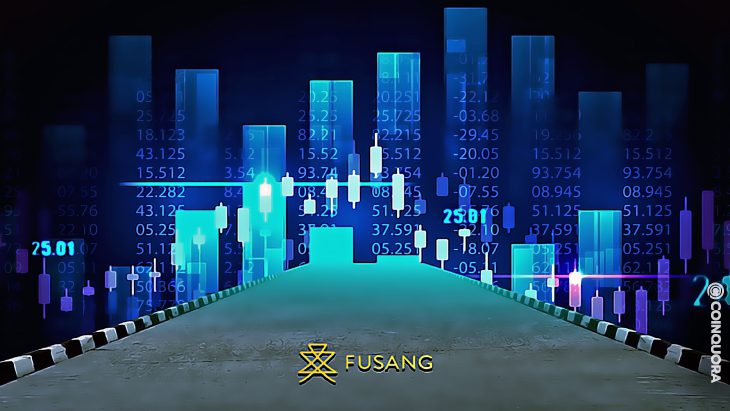Over the years, the capital market has significantly benefited from the evolution of technology and several innovations that have positively affected the sector. One of the most notable examples is cryptocurrency and blockchain technology in general.
For a few years now, the introduction of blockchain technology has slowly changed the market and how it operates, even though adoption is not as widespread as most expect it to be down the line.
Cryptocurrency – A New Form of Investment
Using cryptocurrencies as an investment channel gradually became popular as Bitcoin’s value climbed over the years. As this happened, players in the crypto sector began to offer alternatives to the yearning crypto public.
This led to a surge in initial coin offerings (ICO), a period now known as the ICO boom. Like an IPO (initial public offering), an ICO is a process through which a company raises capital for operations and other activities by selling a new native cryptocurrency.
Mastercoin held its very first ICO in July 2013. In 2014, Ethereum also followed suit and raised the equivalent of $18.3 million at the time. By 2017, ICOs became vastly more popular, and the boom began.
In May of that year, privacy web browser Brave raised $35 million in less than 30 seconds, with messaging app Kik raising about $100 million by September.
By the end of the year, there were hundreds of ICOs, with blockchain storage network Filecoin pulling in more than $257 million. According to research, ICOs raised almost $13 billion from January 2016 to August 2019.
Unsurprisingly, the ICO boom attracted scam projects that had no real value and simply sought to swindle unsuspecting investors out of their hard-earned funds. For instance, Pincoin pulled an exit scam in 2018, disappearing after raising $660 million from 32,000 people.
ICO scams also used several other methods apart from the exit scams, including pump and dumps, Ponzi schemes, URL, and phishing traps, just to name a few.
Crypto scams pose several risks to the average investor. Apart from the increasing lack of faith they cause in the sector, investors are almost always unable to recover funds after these fraudulent transactions are finalized. In many cases, people who put their cash into fraudulent projects rarely recover their initial investment, if any money at all.
There are also fraudulent crypto exchanges that allow scam projects to operate. Generally, investors tend to consider exchanges trustworthy and are more eager to buy through known exchanges. However, because these exchanges are unregulated, investors cannot properly seek justice with authorities.
Crypto 2.0 and Security Tokens
Broadly, crypto 2.0 refers to the process of innovating blockchain technology and digital assets beyond regular cryptocurrencies. Today, blockchain technology offers more than trading standard cryptocurrencies such as Bitcoin (BTC) and Ethereum (ETH).
One major use of blockchain outside of popular digital assets is tokenization. Tokenization refers to creating digital representations of real-world assets on a blockchain network.
The introduction of security tokens effectively begins with tokenization but also involves non-fungible tokens (NFTs) and utility tokens that may not represent physical assets. Security tokens have brought a few changes to the crypto and blockchain sector.
Firstly, unregulated crypto exchanges now must meet the regulatory demands necessary to acquire appropriate licenses for trading security tokens.
Secondly, newer exchanges are springing up to accommodate security tokens and provide the public with more marketplace options for trading.
Finally, the crypto market now has hybrid exchanges that provide the public with access to security token listing and trading.
As the name implies, a hybrid exchange solves the limitations of centralized and decentralized platforms by merging solutions provided by both of these options. A hybrid exchange offers the security and transparency of a decentralized exchange alongside the traditional liquidity and familiarity available from centralized platforms.
A popular example is Fusang, a fully-licensed hybrid exchange where investors and issuers can trade, invest, and issue security tokens using blockchain technology.
The growth potential of security tokens is massive in our continually digitized world. On the one hand, traders already familiar with the crypto sector and blockchain technology will have no problem trading security tokens. On the other hand, market players who do not have blockchain experience would also be willing because of their familiarity with the underlying assets.
In addition to these, trading security tokens provides issuers and investors with ease unavailable on traditional exchanges.
Tokenization Beyond Capital Markets
Away from cryptocurrencies, tokenization revolutionizes all areas of trading, even beyond capital markets. The process is advantageous to creators and issuers of alternative and intangible assets as it democratizes the process of ownership.
Tokenizing alternative assets such as real estate and art can significantly disrupt their respective sectors. Through tokenization, it is easy for issuers to reach a wider audience and considerably expand their pools of prospective buyers.
In addition to this, tokenization helps increase positive market activity as decentralization allows multiple investors to own parts of one or more items – known as fractionalization.
For sports teams, artists, and intellectual property owners, tokenization noticeably expands market liquidity. The process also opens these asset classes to a growing market that allows owners access to a larger fanbase for more financial and community support. Members of their respective communities feel more connected to the teams and artists and share their general pains and successes.
Continuous growth in the rate of tokenization across the investment and capital markets will markedly expand both sectors. Sooner or later, tokenization will reshape all markets that operate with traditional assets, with blockchain marketplaces acting as the logical and go-to option for players of all types to issue and buy assets.


